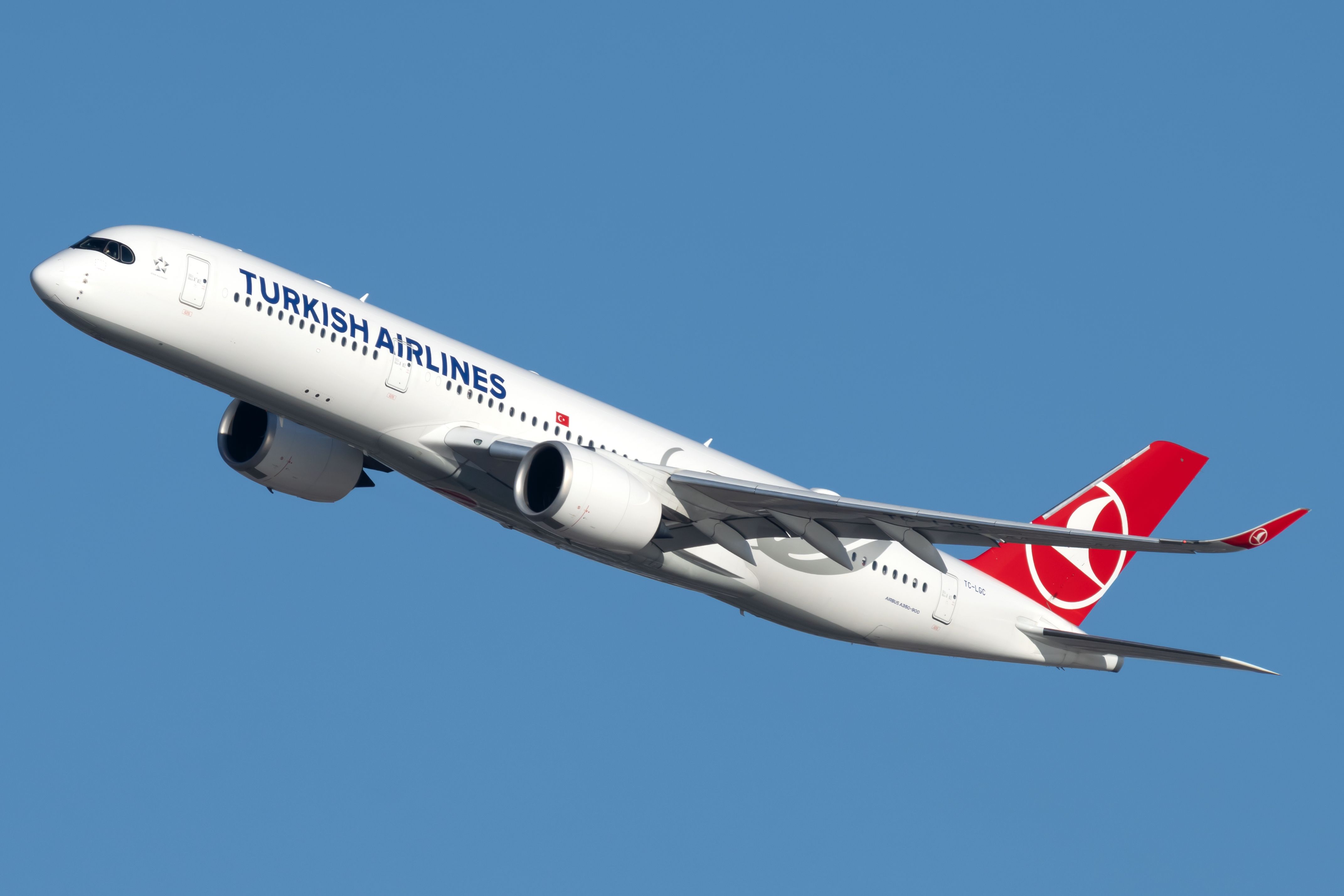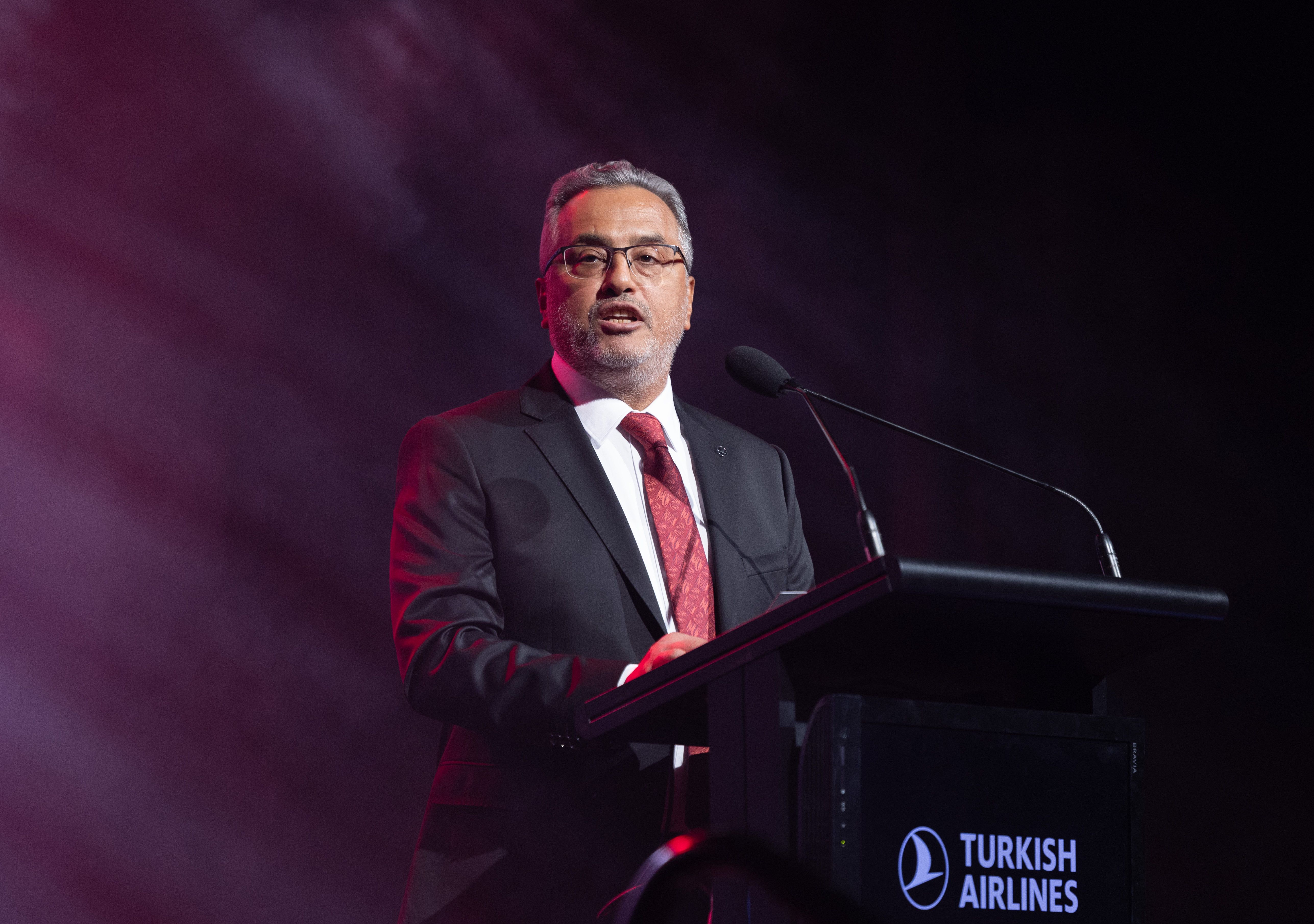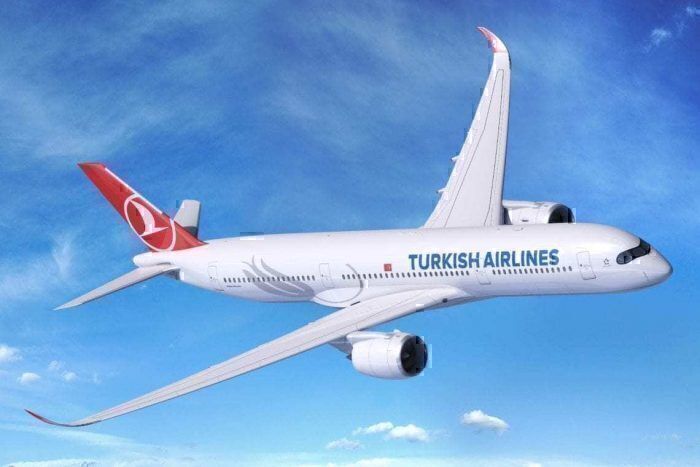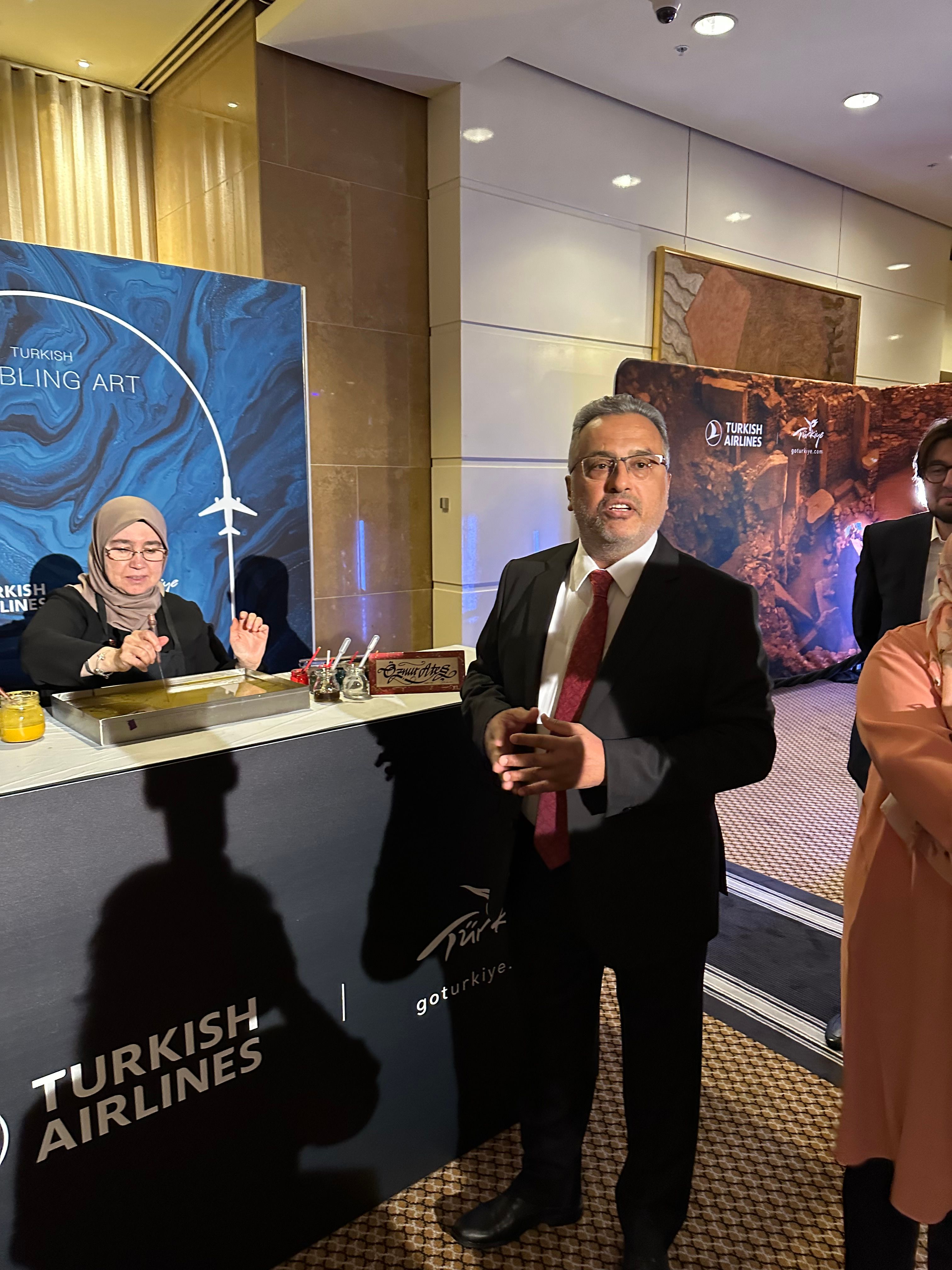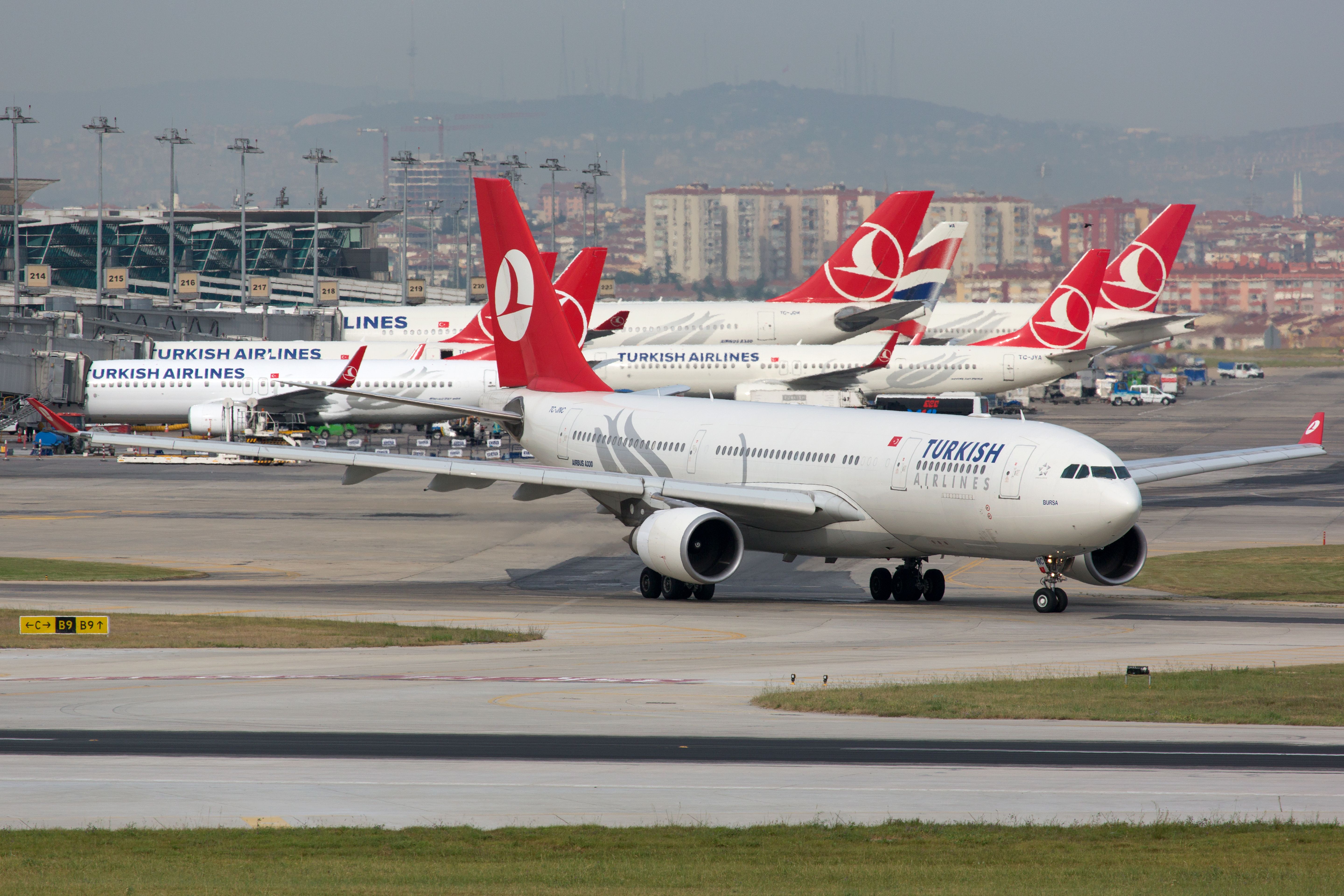Famous American novelist Mark Twain once told a reporter that "the report of my death was an exaggeration." In a similar vein, the many reports stating that Turkish Airlines has selected Melbourne as its first Australian destination are also an exaggeration, with the airline's Chairman confirming that no decision has been made.
The business case needs to stack up
Turkish Airlines Chairman Prof. Dr. Ahmet Bolat was in Melbourne last week to meet with various stakeholders, including the Victorian Minister for Public Transport, the Turkish Ambassador to Australia, the CEO of Melbourne Airport and community leaders. He also hosted a glittering dinner function for around 500 people and an exhibition showcasing the culture, natural beauty and ancient history of Türkiye.
Before the event, Simple Flying had the opportunity to meet one-on-one with Ahmet Bolat, who was happy to talk about the prospect of nonstop flights from Istanbul to Australia. He said that the airline is eager to fly to Australia and that his preference is for nonstop flights, but that it needs to be profitable and with aircraft that can carry full passenger loads.
"Our growth is very sustainable and we are not a government airline, so growth has to be from our own business model and profits. That's the reason we are not really announcing quickly should we should fly to Melbourne and Sydney, it's a matter of mathematics, it's a matter of science and statistics. We are collecting all these and meeting with the authorities, talking about packages, incentives and so on, and eventually, we will make a decision."
Much like Qantas with its Project Sunrise flights, finding the aircraft that can deliver a profitable payload from Istanbul to Melbourne or Sydney is part of the puzzle that needs to be decided. Bolat wants to embrace a proven solution and not be a guinea pig for technology that is not 100% proven and reliable, which suggests the Airbus A350 XWB has the edge at this stage compared to Boeing's 777X. When asked which aircraft he favored he replied:
"Right now we can fly here with the 787 and A350s direct but it is with very limited passengers. We are using the A350 now and the XWB just needs some improvements on the engine and it will be there, but that's not the same with the 777X, therefore we can order A350 XWBs sooner than the 777X."
A clear vision of daily to Melbourne and Sydney
While both Melbourne and Sydney Airports and their respective state governments are pulling out all the stops to attract Turkish Airlines, Bolat pointed out a potential hurdle that can only be overcome by the governments of Australia and Türkiye. He has a very clear vision of servicing both Melbourne and Sydney with daily nonstop flights, and while that may not happen immediately, it seems it needs to be agreed on before any deal is done.
"There is a legal issue at the government level because right now we have a seven [flight] weekly frequency in total from Australia without fifth freedom rights. We want to make sure that we really have 14 frequencies because in five or seven years we want to fly to both cities with the Turkish Airlines' quality service."
Bolat's visit to Melbourne was not only to talk with the stakeholders about the first destination but involved a passion that was clearly dear to his heart, as well as a bit of personal investigation. The airline is on a tour in Asia to promote and introduce Turkish Airlines and Türkiye as a destination and at the event there was a collection of artisans demonstrating various aspects of Turkish culture, such as Calligraphy Art and Water Painting.
Bolat was very keen to show these off, along with a photographic display of some of the ancient archeological finds in his country. He said the visit is part of a tour of the Far East that has been to Seoul, Tokyo, Singapore and Melbourne, and the aim is to attract one million tourists from five countries to visit Türkiye. He also gave an insight into his own style of evaluating new destinations:
"A few years ago I visited Sydney for the IATA meeting and with its Opera House and other things Sydney is better known in Türkiye than Melbourne. So before we make a decision I wanted to see Melbourne by myself, sit with the government officials and attend gatherings with people and so on."
The intent is there but more work to do
The function would have been an ideal opportunity to announce that the airline had selected Melbourne as its first Australian destination, particularly given the presence of the Minister and Melbourne Airport CEO Lori Argus with her senior management team, but it was not to be. For the airport securing new routes is often a long process with many a twist and turn and this project seems to fit that pattern perfectly.
The process is nearing completion and Bolat concluded our interview by saying:
"Already we have had enough studies so now we are going to confirm and maybe compare some of the figures with the government officials, and also we are getting the final buffers of the incentives. We have been here for the last 20 years and we are very eager to add Australia to our growing network."
What he is referring to is that Turkish Airlines, a Star Alliance member, brings thousands of people to Australia every year under its various codeshare agreements. In pre-pandemic 2019 it carried more than 120,000, and last year it had recovered that to around 119,000 passengers.
There is also a very significant Turkish diaspora in Melbourne and Sydney who are keen to fly with the airline on their regular trips back to Türkiye. Many were at the function and told Simple Flying that a nonstop flight to Istanbul is something that they will be lining up for as soon as tickets are available. So the market is there, the airports and state governments are right behind the project and the Airbus A350 XWB is already in the air.
Solving the issue of air rights and frequencies may be trickier, but hopefully, the Chairman's obvious enthusiasm to connect Australia and Türkiye will cut through the red tape and get that done. It would be a great move for all Australians who want to visit Türkiye, Eastern Europe, Central Asia and the Mediterranean region, but it's not a done deal yet.
What do you think of the Turkish Airlines plan? Let us know in the comment section.

